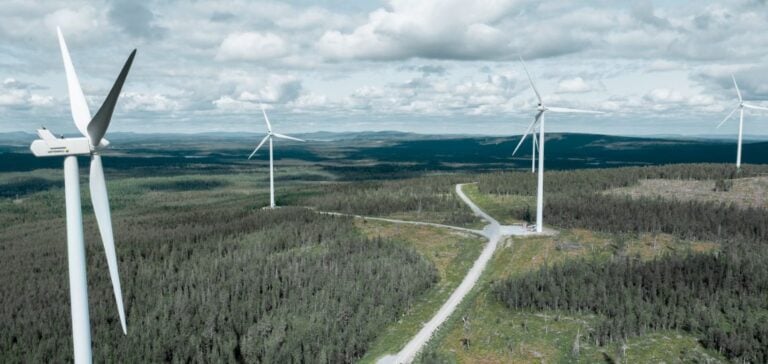The Swedish government is implementing a new strategy to boost the siting of onshore wind farms by allocating more than one billion kronor (around 97 million euros) to municipalities that approve such projects.
The initiative, announced by Romina Pourmokhtari, Minister for Climate and the Environment, is designed to offset the growing number of municipal refusals in recent years.
In this way, the government is seeking to overcome the local resistance that is holding back the development of wind power in the country.
Pourmokhtari points out that the acceptance of projects by local authorities is a major challenge, as local reluctance remains a major obstacle.
In response, the government plans to redistribute part of the revenues generated by these farms to local residents, hoping to alleviate concerns and boost acceptance.
This approach aims to involve communities more closely in the economic benefits of the energy transition.
No measures for offshore wind power and ongoing political debate
The announcement focuses on onshore wind power, but does not yet include specific measures for offshore wind power.
State-owned Vattenfall, a key player in the Swedish energy sector, recently suspended a major offshore wind project, citing unfavorable investment conditions.
This situation highlights the sector’s persistent challenges, including regulation and municipal vetoes, seen by some as significant barriers.
Fredrik Olovsson, of the Social Democratic Party, criticizes the lack of reform regarding municipal veto rights, which he sees as a significant brake on energy development.
This remains a subject of debate in political circles, where adjustments could be considered to facilitate the expansion of renewable infrastructures.
Mixed reactions from the wind industry and economic issues
The measure has received a measured welcome from industry professionals.
Svensk Vindenergi, representing the wind power industry, supports the idea of boosting electricity production to meet the growing demand from Swedish industry.
However, the organization insists on the need for a balanced approach that takes into account both local constraints and national energy objectives.
This policy reflects an attempt to reconcile economic development with the management of local impacts, by adapting benefit-sharing models.
The industry’s response remains cautious, indicating that adjustments will be necessary to address the various issues at stake, particularly those relating to offshore wind power and local governance models.
Strategy and outlook for Sweden’s energy future
The Swedish government continues to examine ways of maximizing the local economic benefits of installing wind farms while supporting national electrification targets.
This strategy, while targeting local acceptance of projects, highlights the challenges of reconciling energy development and local acceptability.
Future direction may depend on the ability of decision-makers to adjust policies in line with local realities and global economic imperatives.






















